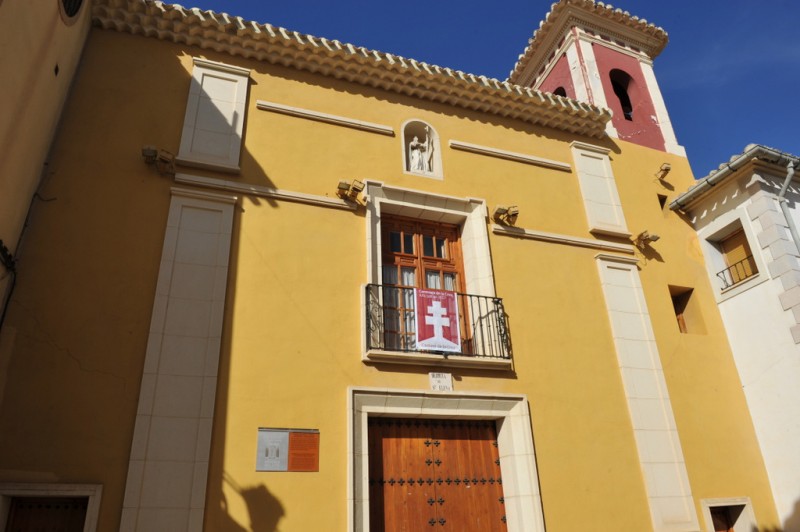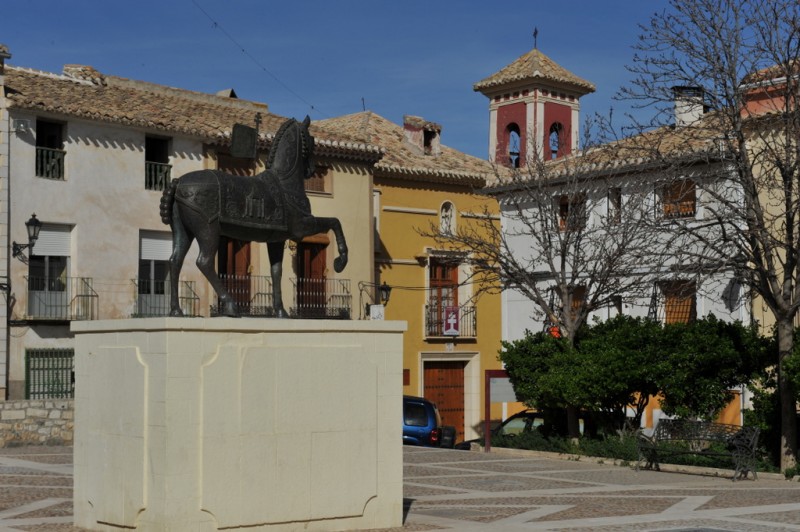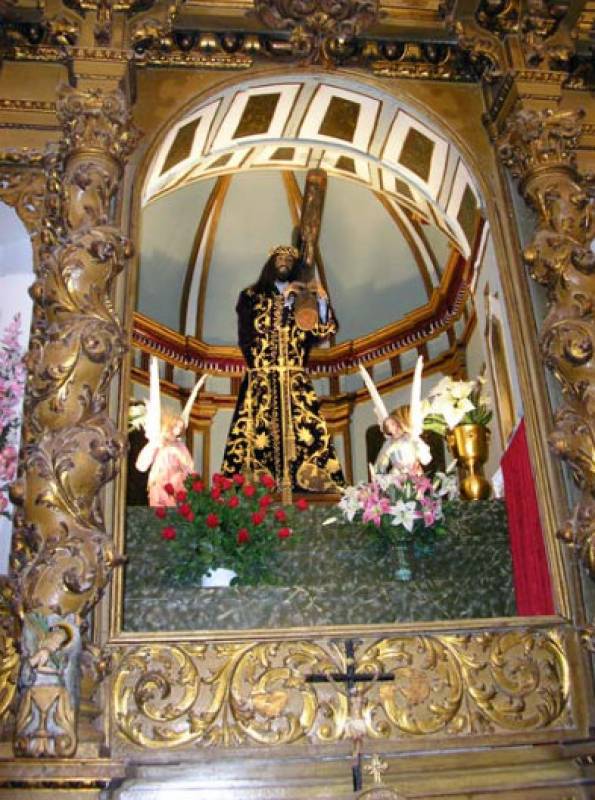- Region
- Vega baja
- Marina Alta
- Marina Baixa
- Alicante
- Baix Vinalopo
- Alto & Mitja Vinalopo
-
ALL TOWNS
- ALICANTE TOWNS
- Albatera
- Alfaz Del Pi
- Alicante City
- Alcoy
- Almoradi
- Benitatxell
- Bigastro
- Benferri
- Benidorm
- Calosa de Segura
- Calpe
- Catral
- Costa Blanca
- Cox
- Daya Vieja
- Denia
- Elche
- Elda
- Granja de Rocamora
- Guardamar del Segura
- Jacarilla
- Los Montesinos
- Orihuela
- Pedreguer
- Pilar de Horadada
- Playa Flamenca
- Quesada
- Rafal
- Redovan
- Rojales
- San Isidro
- Torrevieja
- Comunidad Valenciana
The church of Santa Elena in Caravaca de la Cruz
This Ermita de Santa Elena has been used as a place of worship in Caravaca for 300 years
 The Ermita de Santa Elena is a small church in Caravaca de la Cruz between Calle Canalejas and Calle Santa Elena, the current structure dating from the first quarter of the 18th century. Of all of the small “ermitas” which were built at that time in Caravaca it is the only one still used as a place of worship and is still the headquarters of the Cofradía which first built it over 400 years ago.
The Ermita de Santa Elena is a small church in Caravaca de la Cruz between Calle Canalejas and Calle Santa Elena, the current structure dating from the first quarter of the 18th century. Of all of the small “ermitas” which were built at that time in Caravaca it is the only one still used as a place of worship and is still the headquarters of the Cofradía which first built it over 400 years ago.
As such, it features in the processions of Semana Santa, principally that of Jesús Nazareno on the morning of Good Friday (Viernes Santo).
In addition, the location on the hill of Cabezo de la Cruz is very close to the Plaza de los Caballos del Vino, which is of central importance in the fiestas of early May.
 Building first began in 1612 under the supervision of Juan Fernández Piñero on behalf of the Cofradía de Nuestro Padre Jesús Nazareno y Santa Elena (founded in 1596) and its Mayordomo, Mateo de Pereda.
Building first began in 1612 under the supervision of Juan Fernández Piñero on behalf of the Cofradía de Nuestro Padre Jesús Nazareno y Santa Elena (founded in 1596) and its Mayordomo, Mateo de Pereda.
This original building was rebuilt in 1743, with the Camarín amplified in 1791.
 Inside, the works of religious art include a sculpture of St John the Baptist by José Sánchez Lozano, a 20th century artist who followed the guidelines laid down by Francisco Salzillo 200 years previously and was responsible for replacing many of the works destroyed prior to and during the Spanish Civil War.
Inside, the works of religious art include a sculpture of St John the Baptist by José Sánchez Lozano, a 20th century artist who followed the guidelines laid down by Francisco Salzillo 200 years previously and was responsible for replacing many of the works destroyed prior to and during the Spanish Civil War.
The altar screen, which is the work of Agustín López, is dated 1707, and features the figure of “Nuestro Padre Jesús Nazareno”, whose feet are kissed by the faithful in a ceremony which is held on the first Friday of every March.
Other figures featured in the local Easter Week processions include those representing Christ in the Garden of Gethsemane, Santa Lucía, Santa Águeda, San José and “La Dolorosa”, St John the Baptist and of course Santa Elena, the mother of the Roman Emperor Constantine who was instrumental in him embracing the Catholic faith.
Further information about Caravaca is available from the tourist office (Plaza de España, 7, telephone 968 702424, email turismo@caravacadelacruz.es).
Or for more local information, including the Holy Jubilee Year as well as local news and what’s on, go to the home page of Caravaca Today.
staff.inc.ali


